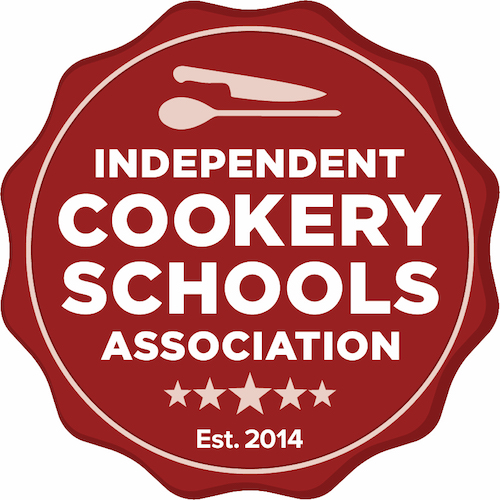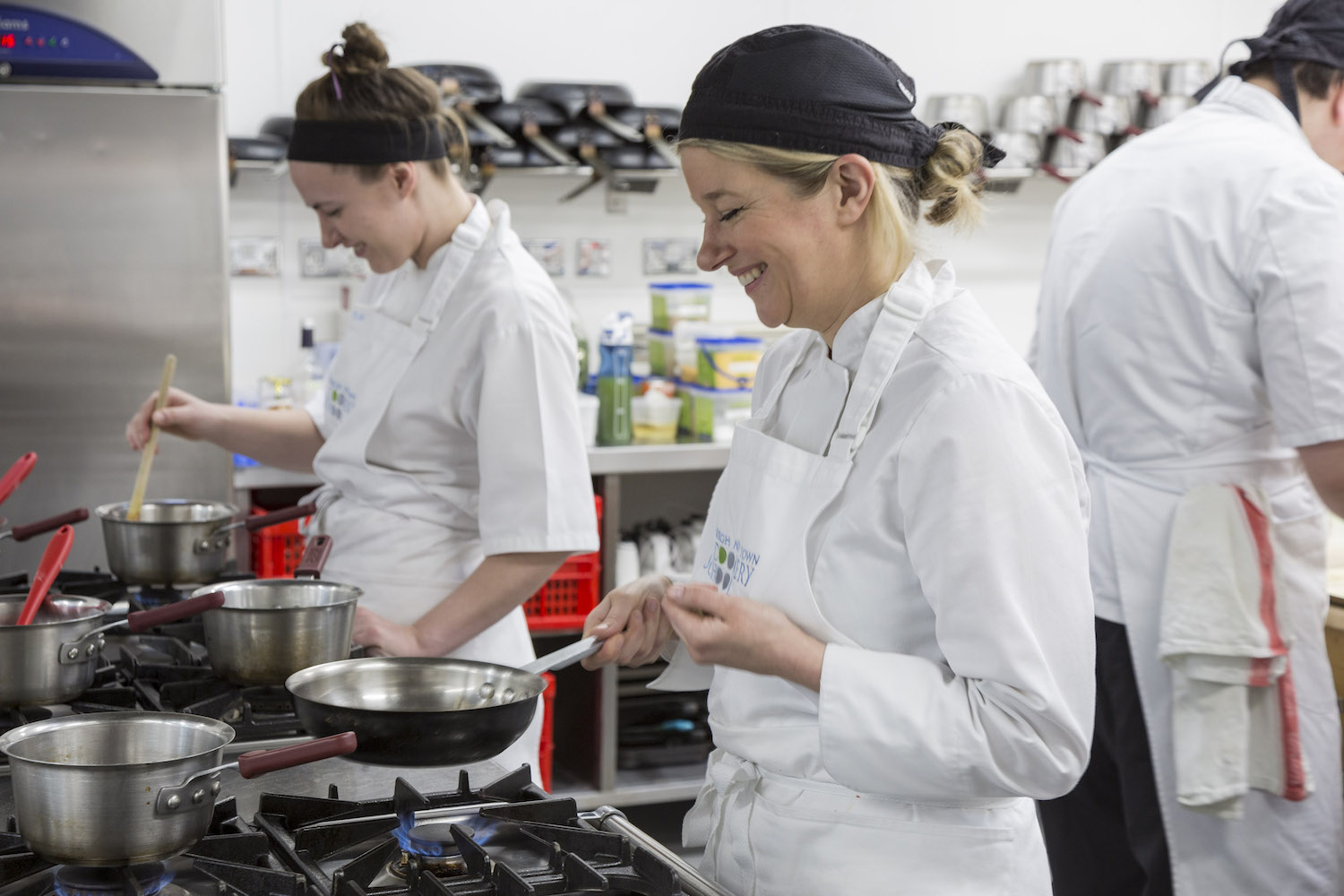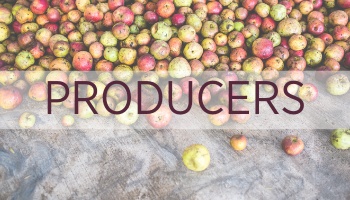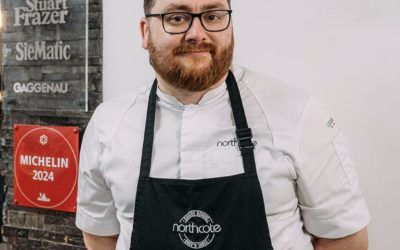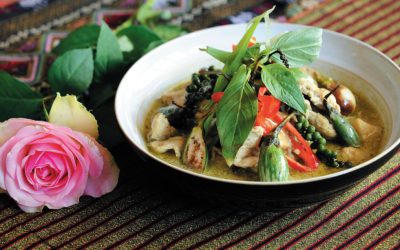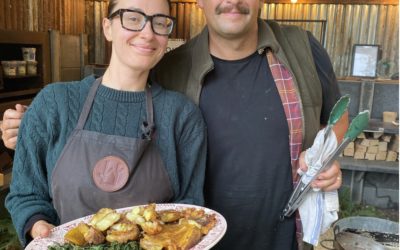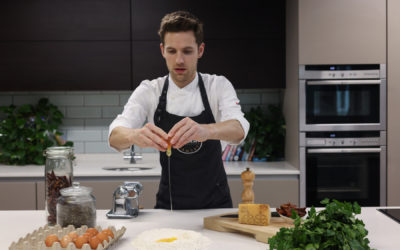The key things to consider when choosing a cookery course
As more of us seek to improve our skills in the kitchen, cookery schools across the country have seen a steep rise in demand. From amateur cooks looking for inspiration to would-be chefs wanting to progress their careers, there are cookery schools catering to every level of skill.
But how do you choose the right cookery school? Are there any guarantees of quality, and does it really matter? In a nutshell, yes – and here’s why.
Anyone – regardless of their skills or background – can start a cookery school. There are no laws preventing it, which means that someone could very easily give themselves a name, build a training programme and call it a ‘professional’ cookery course.
They can also invent the qualification you’ll be awarded at the end of that course. When a cookery school is ‘self-accredited’ in this way, they effectively hold themselves to standards of teaching that are not externally recognised by any formal governing or awarding body in the industry.
A mark of trust
Throughout the UK, thousands of organisations are providing their own ‘qualifications’. Many do it extremely well; they have excellent, long-established reputations and provide expert training which leads to their own self-accredited qualifications, and those qualifications are highly regarded in the industry.
Some even hold international acclaim. Bertinet Kitchen cookery school in Bath, headed up by expert baker Richard Bertinet provides in-depth training for students of all levels as part of their recognised program. The renowned Leiths School of Food and Wine, also offer their own Diploma in Food and Wine – a qualification that has launched the successful careers of thousands of its graduates, not just in the UK but around the world.
Leiths are more of an exception than the norm, though – and for those who are more serious about developing their cookery skills, self-accrediting courses can become even more problematic.
Turning passion to profession
Without a qualification from a formally recognised awarding body, an aspiring chef can’t collect UCAS or similar points towards a university application, or eventually nto a career in catering or similar.
Neither can they apply for entry visas to work in other countries who operate points-based systems. And budding chefs seeking to go straight into the working world will find that self-accredited qualifications generally don’t hold much sway with the majority of industry employers.
So how do qualifications become formally recognised? The UK government maintains a Register of Regulated Qualifications, which outlines all the qualifications across every sector which it formally recognises. But for the hospitality industry, it’s a little more complicated. A cookery school might be listed on the government’s Register of Education Providers, for example, but that does not necessarily mean it’s subject to external inspections.
Of course, not everyone who takes a cookery course is looking to become a professional chef. Many people simply want to master their favourite dishes, expand their kitchen repertoire or brush up on everything from the very basics to the more advanced elements of cookery.
For this audience, accreditation is still an important consideration. It’s a mark of trust and quality which gives you complete assurance that the cookery school you’ve chosen is operating to the highest standards of training.
So what type of accreditation or qualification should aspiring cooks and chefs seek out when choosing a venue?
Making the right choice
Firstly your preferred or chosen cookery school should ideally be independently assessed by the Independent Cookery Schools Association (ICSA). ICSA accreditation is held by a growing number of cookery schools across the country, from Ashburton Cookery School in the West Country, right up to Edinburgh School of Food and Wine, and up to 30 accredited cookery schools in between.
ICSA Accredited Cookery Schools have undergone rigorous assessments to ensure ‘Consistent delivery of excellence in cookery skills and training’ as well as other criteria such as adhering to strict standards of environmental sustainability, seasonality of ingredient and continued support for British farmers and produce.
That’s why ICSA cookery schools should be the first port-of-call for anyone looking to enrol on a cookery course, whether for pleasure or future career potential. It’s an assurance of not only exceptional quality and standards, but of a qualification that will hold real value for the chefs of tomorrow.
When seeking an ‘accredited qualification’ these are separately undertaken by national bodies such as the Confederation of Tourism and Hospitality (CTH) as well as other bodies who benchmark the curriculum of the course against nationally recognised standards, covering key aspects of the qualification being provided.
Seek out an accredited cookery school by contacting ICSA and seek out one of their ‘Academy’ schools, who also deliver accredited qualifications, displaying their ‘Accredited Cookery School Certification Mark’. A fully interactive list of Accredited Cookery Schools, with cookery school profiles and links to their websites can be found on the National Register Of Accredited Cookery Schools here
